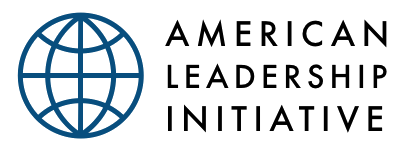Rule of Law/Anti-Corruption Series
/The American Leadership Initiative hosted two roundtables to consider whether and how corruption and rule-of-law could be addressed as a major US foreign policy concern. We agreed that this issue is gaining prominence and relevance, with an increasing number of people and organizations, in the United States and elsewhere, seeking to address the challenges of Rule of Law and corruption in developing countries. There are also many overlapping facets to the issue – ineffective judicial systems, impunity for public officials, longstanding corruption in procurement, state-owned enterprises, customs agencies and regulators, etc.
This summary does not identify the individuals who made the points below because this discussion was held under a limited Chatham House rule. Key topics and perspectives were as follows:
The impact of corruption is large and growing.
In some countries, 20 percent or more of public expenditures may be captured by illicit actions, severely limiting the funds available for infrastructure and public services, including for example health care and education.
Democratic institutions may be in decline, in part due to the influence of graft.
International trade is distorted, as companies that respect legitimacy are effectively excluded from some markets.
Transnational criminal and even terrorist networks benefit from weak legal institutions that ‘can be purchased.’
Political will by government leaders to correct the problems is necessary.
Some leaders abuse the public outrage over corruption, by using spurious charges of corruption as justification for sanctioning political opponents. Nevertheless, political will can be encouraged via the efforts of civil society.
Business – foreign and domestic – can be a key influencer.
Process changes that create transparency in public procurement – especially by State-Owned Enterprises, can be an effective tool, as the source of perhaps 80 percent of corrupt payments.
Addressing corruption in customs agencies can also be effective and important.
The international community can play a role.
Mobilizing international action under a strategic vision, that includes strong coordination of USG activities as well as cooperation with the international community would be a positive step.
Take-away suggestions for US policy include:
The US needs a strategic vision that captures public support and focuses the efforts of the many public and private-sector actors who are engaged work on rule of law and anti-corruption.
The USG needs to break down compartmentalization within itself, making these issues a foreign policy priority.
The USG had spent large amounts of funding on rule-of-law efforts overseas with only modest success.
USG needs to coordinate its many rule of law programs which are run by different government agencies.
Countries need help developing their own rule-of-law and anti-corruption institutions; these programs can’t be effectively imposed from the outside.
Specific policy actions could include:
Support for civil society;
Support for international institutions that set standards of behavior;
Support for judicial reform;
Bilateral and multilateral advocacy of transparency in customs and procurement;
Setting international standards for transparency of beneficial ownership of assets;
Strong enforcement of the Foreign Corrupt Practices Act.


